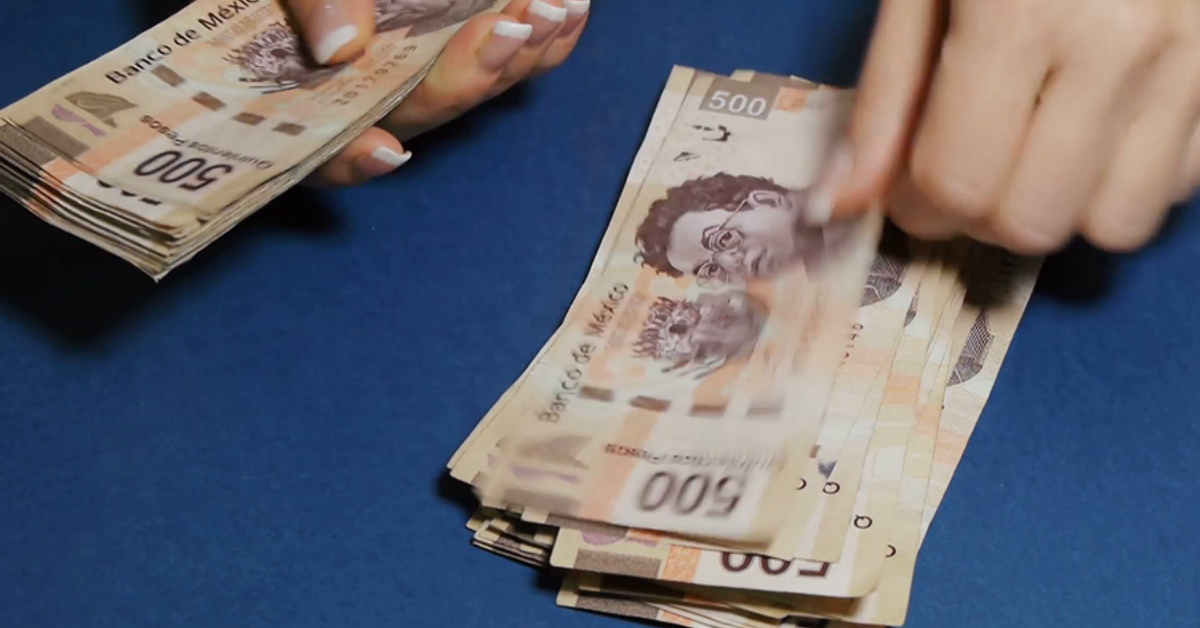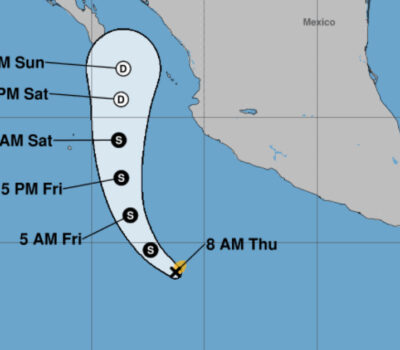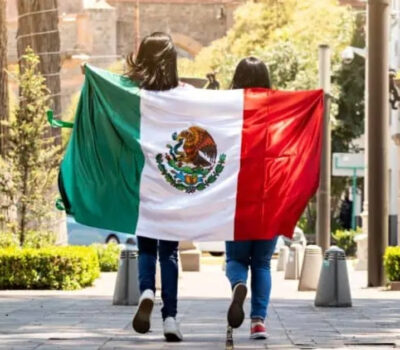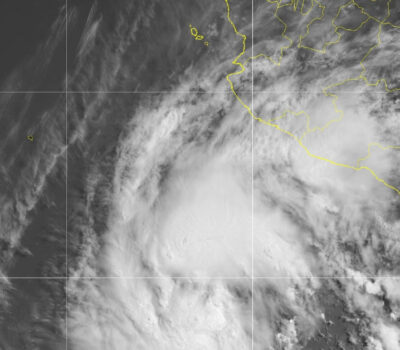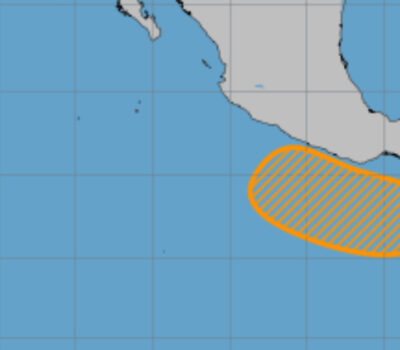Puerto Vallarta, Mexico – In a widely anticipated move, the U.S. Federal Reserve announced today that it is cutting interest rates by 0.5%, marking a significant shift in monetary policy aimed at boosting economic activity amid concerns about slowing growth. While the immediate impact of this decision will be felt across financial markets and the U.S. economy, its ripple effects will extend far beyond American borders, particularly for U.S. expats living in countries like Mexico with the possibility of a weakening dollar against the Peso.
For the tens of thousands of American and Canadian expatriates residing in Mexico, including popular destinations such as Puerto Vallarta, San Miguel de Allende, and Mexico City, today’s interest rate cut may lead to changes in exchange rates, inflation, and investment returns—factors that can directly affect their day-to-day finances.
How a U.S. Interest Rate Cut Impacts Expats in Mexico
The Federal Reserve’s decision to cut rates by 0.5% aims to lower borrowing costs and stimulate economic activity in the U.S., but it will also have several notable consequences for American expats living in Mexico. Here are the key areas of impact:
1. Currency Exchange Rates
One of the most immediate effects of a U.S. interest rate cut is a potential weakening of the U.S. dollar. Lower interest rates make dollar-denominated assets less attractive to global investors, leading to a depreciation of the dollar relative to other currencies, including the Mexican peso.
Weaker Dollar, Stronger Peso: For U.S. expats in Mexico who rely on income from the U.S.—such as Social Security benefits, pensions, or U.S. investment returns—a weaker dollar means that when they convert their dollars to pesos, they will receive fewer pesos. This can reduce their purchasing power, making everyday expenses in Mexico, such as groceries, utilities, and rent, more expensive.
Conversely, a stronger peso might also drive up the cost of locally produced goods and services, further affecting the affordability of life in Mexico for expats.
2. Rising Cost of Living
A depreciating U.S. dollar, combined with a stronger Mexican peso, can lead to inflationary pressures in Mexico, particularly for imported goods. Many consumer products in Mexico, such as electronics, automobiles, and even food, are imported and often priced in U.S. dollars.
Higher Inflation: If the peso strengthens further due to today’s rate cut, these imported goods could become more expensive, contributing to a rise in inflation. Expats, many of whom live on fixed incomes, could find themselves paying more for essentials, eroding the cost advantages that initially drew them to Mexico.
Real Estate Prices: A lower U.S. interest rate environment may also spark increased demand for real estate in Mexico, particularly in expat-friendly areas. As more foreign investors seek out real estate opportunities to take advantage of lower U.S. borrowing costs, housing prices could rise, making it more difficult for expats looking to buy or rent property.
3. Financial Investments
The Federal Reserve’s rate cut has broad implications for investment portfolios, especially for expats who have savings or investments in U.S. accounts. Lower interest rates reduce the returns on savings accounts, certificates of deposit (CDs), and bonds, which may impact the financial security of expats relying on these investment vehicles.
Lower Investment Returns: Expats who depend on fixed-income investments like U.S. bonds or CDs for a portion of their income will likely see reduced returns. This drop in passive income can strain the financial stability of retirees or those relying on investments to cover living expenses in Mexico.
However, the interest rate cut may positively affect the stock market, as lower rates tend to encourage investment in equities. Expats with diversified portfolios, including stocks, may see gains in their equity holdings, which could offset some losses in fixed-income investments.
4. Mortgage and Loan Costs
Expats with dollar-denominated loans or mortgages in the U.S. could benefit from the Federal Reserve’s rate cut. Lower interest rates mean cheaper borrowing costs, which can reduce monthly payments on existing loans and make it more affordable for expats to finance property or other large purchases in the U.S.
Cheaper Borrowing Costs: If expats are considering buying property in Mexico with U.S.-based financing, they may be able to lock in lower interest rates, making home ownership more attractive. However, for expats dealing with Mexican financial institutions, the immediate impact of today’s rate cut may not be as pronounced, as Mexico’s central bank operates independently and sets its own monetary policy.
5. Mexico’s Response
Mexico’s central bank, Banxico, monitors the U.S. Federal Reserve’s actions closely. A significant cut in U.S. interest rates may prompt Banxico to adjust its own policies to prevent the peso from appreciating too much. However, if Banxico leaves rates unchanged while the peso strengthens, inflationary pressures may rise.
Impact on Mexican Monetary Policy: Should Banxico decide to lower its rates in response to today’s announcement, borrowing costs in Mexico would decrease, potentially encouraging consumer spending and investment. For expats, this could further fuel inflation in the country, affecting the overall cost of living.
6. Effect on Retirees and Fixed Income
For retirees in Mexico who rely on U.S. pensions or Social Security payments, today’s interest rate cut could present challenges. A weaker dollar means that their fixed income will not stretch as far, reducing the financial cushion that many retirees depend on.
Reduced Spending Power: With fewer pesos for each dollar received, expats may need to adjust their spending habits or explore new ways to manage their finances, such as seeking local investment opportunities that offer higher returns or reconsidering luxury purchases.
The Broader Impact on Expats
Today’s decision by the Federal Reserve to cut interest rates by half a percentage point is likely to have mixed effects for U.S. expats living in Mexico. While lower borrowing costs and potential stock market gains may offer some financial relief, the weakening of the U.S. dollar against the peso and inflationary pressures on goods and services in Mexico will likely lead to higher living costs.
Expats will need to monitor currency fluctuations closely and adjust their financial strategies accordingly, particularly those relying on fixed incomes from the U.S. With the peso strengthening and inflation expected to rise, today’s interest rate cut may challenge the economic advantages many expats sought when relocating to Mexico.
Puerto Vallarta, Mexico - In a widely anticipated move, the U.S. Federal Reserve announced today that it is cutting interest rates by 0.5%, marking a significant shift in monetary policy aimed at boosting economic activity amid concerns about slowing growth. While the immediate impact of this decision will be felt across financial markets and the U.S. economy, its ripple effects will extend far beyond American borders, particularly for U.S. expats living in countries like Mexico with the possibility of a weakening dollar against the Peso.

